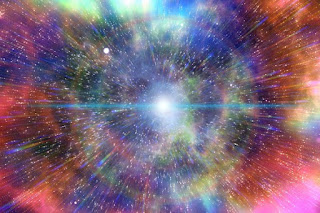The Origin of Energy Problem
The majority of scientists today presuppose materialism, which means there is no Creator, no miracles, and so forth. Conversely, biblical creationists and some in the Intelligent Design community presuppose what is abhorrent to secularists. The beliefs of materialists cause major scientific problems for them.
Before materialistic naturalism became the a priori driving force in the secular science industry, most scientists believed in creation. Those who reject the Creator cannot rationally explain energy in the universe. Ironically, they invoke unscientific philosophical explanations.
 |
| Big Bang abstract, Pixabay / Gerd Altmann |
The highly-Frankensteined Big Bang was proposed as an origin to the universe, which bothered many secularists because they thought it was uncomfortably close to biblical creation. (Enthusiastic but uninformed Christians accept the Big Bang as evidence for creation, which is a bad idea.) Before that, many held to the Steady-State Hypothesis of the early 20th century, which is the continual creation of matter — despite the First Law and no empirical evidence.
Scientists realize that the Second Law means that the entire universe will fade into a "heat death", which is a very gloomy prospect indeed. Materialism and cosmic evolution are in no wise messages of hope. There is hope to be found in our Creator and Redeemer, and no need for false science delving into philosophies based on wishful thinking and imagination. Genesis 1:1 is the logical conclusion.
The universe contains an unimaginable amount of energy. Your little finger alone holds enough to power a major city for months. Where did all this energy come from? The answer has put naturalistic scientists on the horns of a dilemma, but believers see this fact as another reason to wonder in awe at the Creator’s power.
You can read the rest (or listen to the audio by my favorite reader) at "Physics’ Unsolved Energy Crisis."